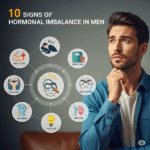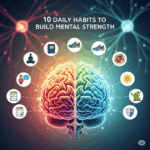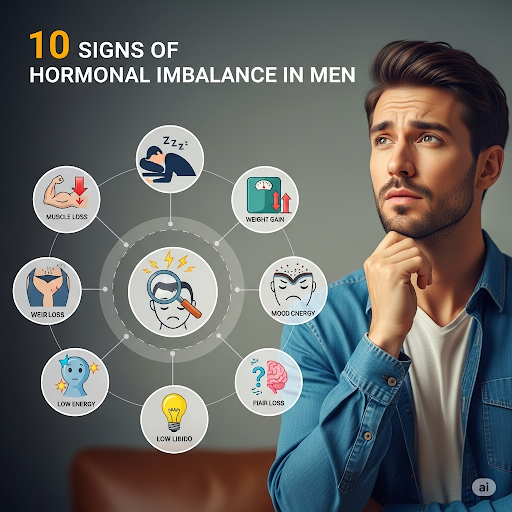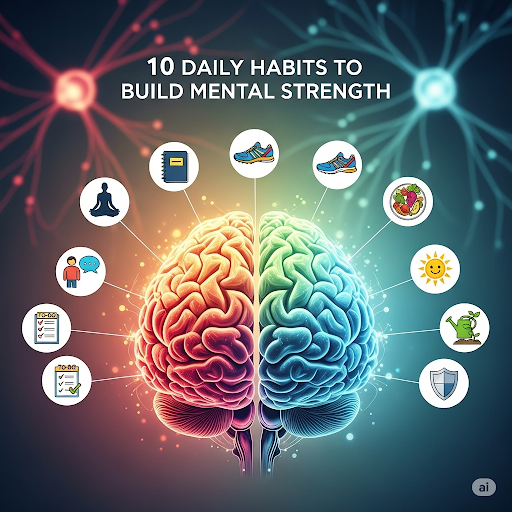When Something Feels “Off” – Your Hormones Might Be Talking
Introduction: It’s Not Just a “Midlife Crisis” – It Could Be Your Hormones
Let’s be honest most men aren’t racing to the doctor every time they feel tired or moody. You push through. You chalk it up to stress, age, maybe poor sleep. But what if that sluggishness, irritability, or belly fat isn’t just “life”? What if it’s your hormones waving a red flag?
Hormones are your body’s chemical messengers. Testosterone, cortisol, insulin, thyroid hormones these little signals regulate everything from your mood and energy to your sex drive and metabolism. When they’re in sync, life feels pretty good. But when they fall out of balance? Things can go sideways fast.
Here are 10 subtle (and not-so-subtle) signs your hormones may be out of whack and what they’re trying to tell you.
1. Your Energy Is in the Gutter, Even After Rest
That deep, soul-level exhaustion that no amount of coffee or sleep seems to fix? It’s a classic signal of hormonal imbalance. Low testosterone, elevated cortisol, or sluggish thyroid function can zap your energy and leave you feeling like you’re dragging your body around all day.
You might wake up tired. You might crash hard in the afternoon. You might feel like your “get-up-and-go” got up and left. It’s not laziness it’s a hormonal traffic jam.
2. Your Sex Drive Isn’t What It Used to Be
This one hits hard. When your libido suddenly disappears or even just fades you start wondering, What’s wrong with me? The truth is, sexual desire is tightly regulated by testosterone. If your levels dip, your interest can too. It’s not just about performance it’s about the internal spark.
Low sex drive in men is one of the earliest and most common signs of hormonal imbalance. Don’t ignore it. It’s not just in your head it’s in your blood chemistry.
3. Mood Swings or Irritability Creeping In
Men aren’t immune to emotional turbulence. If you find yourself feeling unusually anxious, easily irritated, depressed, or emotionally flat, your hormones might be behind it.
Testosterone plays a big role in emotional stability. So does cortisol, your stress hormone. When cortisol is high and testosterone is low, emotional resilience drops. You feel snappy, withdrawn, or just “off” even when nothing specific is wrong.
4. You’re Losing Muscle Despite Working Out
You’re hitting the gym, lifting the weights, eating the protein and yet your muscles aren’t growing like they used to. In fact, they might be shrinking.
Testosterone and growth hormone are crucial for maintaining and building muscle mass. When they dip, muscle catabolism (breakdown) increases, and your recovery slows. Even a solid workout routine won’t fix it if your hormones are out of balance.
This is your body saying: We’re missing key ingredients.
5. Your Belly Is Growing But Not the Rest of You
One of the sneakiest signs of hormonal imbalance in men is central weight gain that stubborn belly fat that doesn’t budge. Low testosterone combined with high insulin and cortisol levels can cause fat to accumulate right around the midsection.
It’s not just a cosmetic concern. Visceral fat (the kind that hugs your organs) is inflammatory and can make hormonal imbalance even worse. It becomes a vicious cycle of weight gain and hormone disruption.
6. Sleep Is a Struggle Too Much or Too Little
Can’t fall asleep? Wake up at 3 a.m. every night? Or maybe you sleep 9 hours and still wake up groggy?
Hormones like melatonin, cortisol, and testosterone all influence your sleep patterns. High nighttime cortisol keeps your brain wired when it should be resting. Low testosterone is associated with poor sleep quality and fragmented sleep. And when sleep suffers, your hormones suffer more. It’s a feedback loop and it’s exhausting.
7. You’re Sweating More Than Usual Especially at Night
Sudden night sweats or feeling overheated for no reason could signal hormonal trouble. While it’s often associated with women, men can experience hormone-related sweating too especially when testosterone is low or thyroid hormones are high.
If your shirt is soaked in the middle of the night or you find yourself sweating through meetings or meals, pay attention. Your internal thermostat might be glitching.
8. Brain Fog, Forgetfulness, or Trouble Concentrating
Ever walk into a room and forget why? Or read a paragraph three times and still not get it?
That frustrating mental fog could be more than stress it might be hormonal. Low testosterone and poor thyroid function can impair cognitive sharpness. High cortisol can shrink areas of the brain responsible for memory and focus.
If your brain feels like it’s running on low bandwidth all the time, your hormones may be interfering with your mental clarity.
9. Erectile Dysfunction or Changes in Performance
This one’s hard to talk about, but even harder to live with. ED isn’t always a psychological issue or a one-time thing. In many cases, it’s a hormonal imbalance particularly low testosterone or poor circulation due to high insulin or cortisol levels.
Your body relies on a delicate hormonal dance to make arousal and performance smooth. When that dance is disrupted, performance issues become more frequent and frustrating.
If things aren’t working like they used to, don’t ignore it your hormones could be quietly crying for help.
10. Low Motivation or “I Just Don’t Care” Syndrome
Lack of drive, not just at work or in relationships, but in general can stem from imbalanced hormones. Testosterone plays a huge role in motivation, confidence, and initiative. When it dips, you may start to feel indifferent, less competitive, and less ambitious.
It’s not burnout or laziness it’s biology. If your spark feels dim and life feels dull, your body might be telling you that your hormonal engine needs tuning.
Final Thoughts: It’s Not “Just Aging” It’s Fixable
Men are taught to tough things out, to push through tiredness, to keep quiet about what feels “off.” But when your hormones are unbalanced, your entire system mind, body, and mood starts waving red flags.
The good news? You don’t have to settle for this new normal. Most hormone imbalances are treatable sometimes through lifestyle changes like better sleep, stress management, diet, and strength training. Sometimes with medical support.
What matters is not ignoring the signs. Your body speaks in whispers before it screams. If you’re noticing even a few of these symptoms, it might be time to check in with your doctor and look deeper.
Because when your hormones are in harmony, you feel like yourself again.












